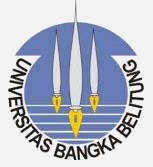“That's why I never learned English from Indonesian teachers”:
Investigating Native-Speakerism in YouTube Video Comments
DOI:
https://doi.org/10.33019/berumpun.v6i2.110Keywords:
Sacha Stevenson, Seleb EnglishAbstract
This study aims to examine the extent to which native-speakerism (NS) is embedded in the comments responding to a YouTube video entitled “Salah Kursus Bahasa Inggris?- Seleb English” by a YouTuber named Sacha Stevenson. The researchers believe that native-speakerism, an ideology that creates a power imbalance favoring native speakers of English over nonnative speakers of English, is present in the video, in which the content creator scrutinizes Indonesian people’s English accents. However, this paper focuses on the comments responding to the video, since they can show to what extent NS is adopted by EFL speakers/learners in Indonesia. The data was retrieved using YouTube Data API and Python programming language, sorted using Microsoft Excel, and categorized by applying three reading steps into four levels which spans from 0 (no indication of native speakerism) to 3 (strong indication of native speakerism). The findings are presented descriptively and analyzed within the theoretical framework on NS. The results suggest that NS is present in the observed comments on all four levels, which suggests how deeply embedded the NS ideology within the community of Indonesian English language learners and speakers. Suggestions on how to counter this ideology are presented in conclusion.




